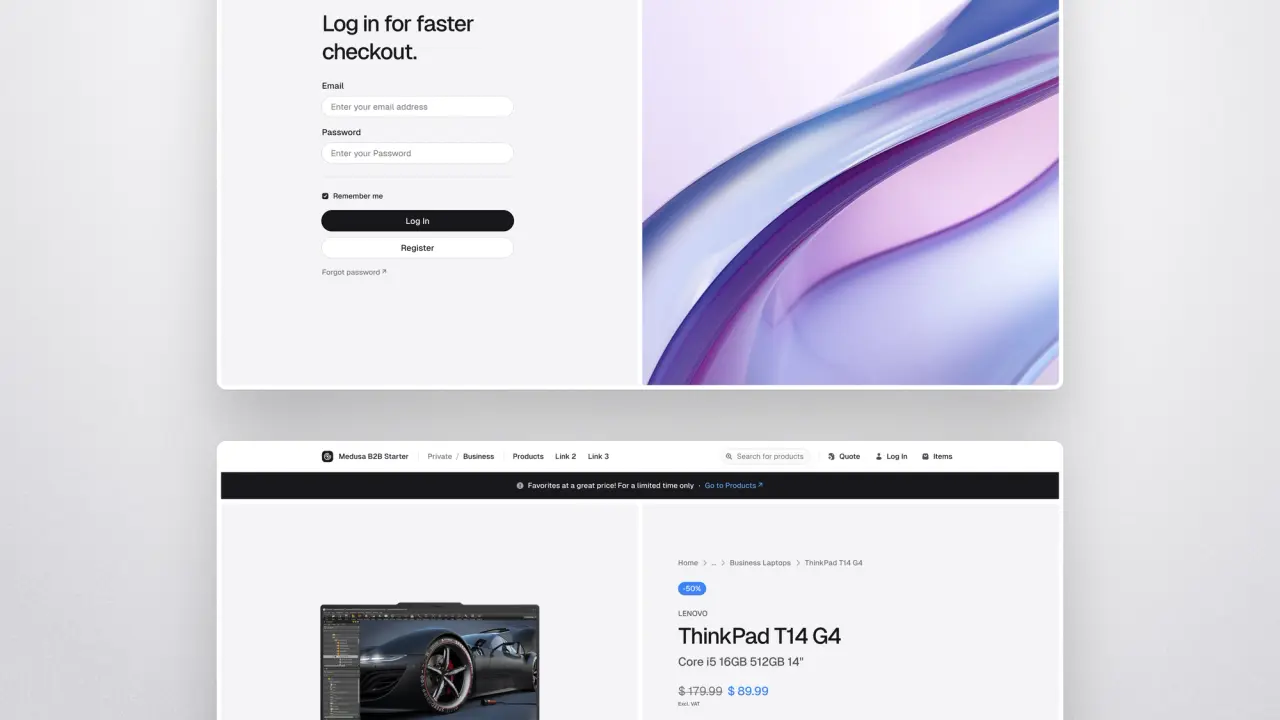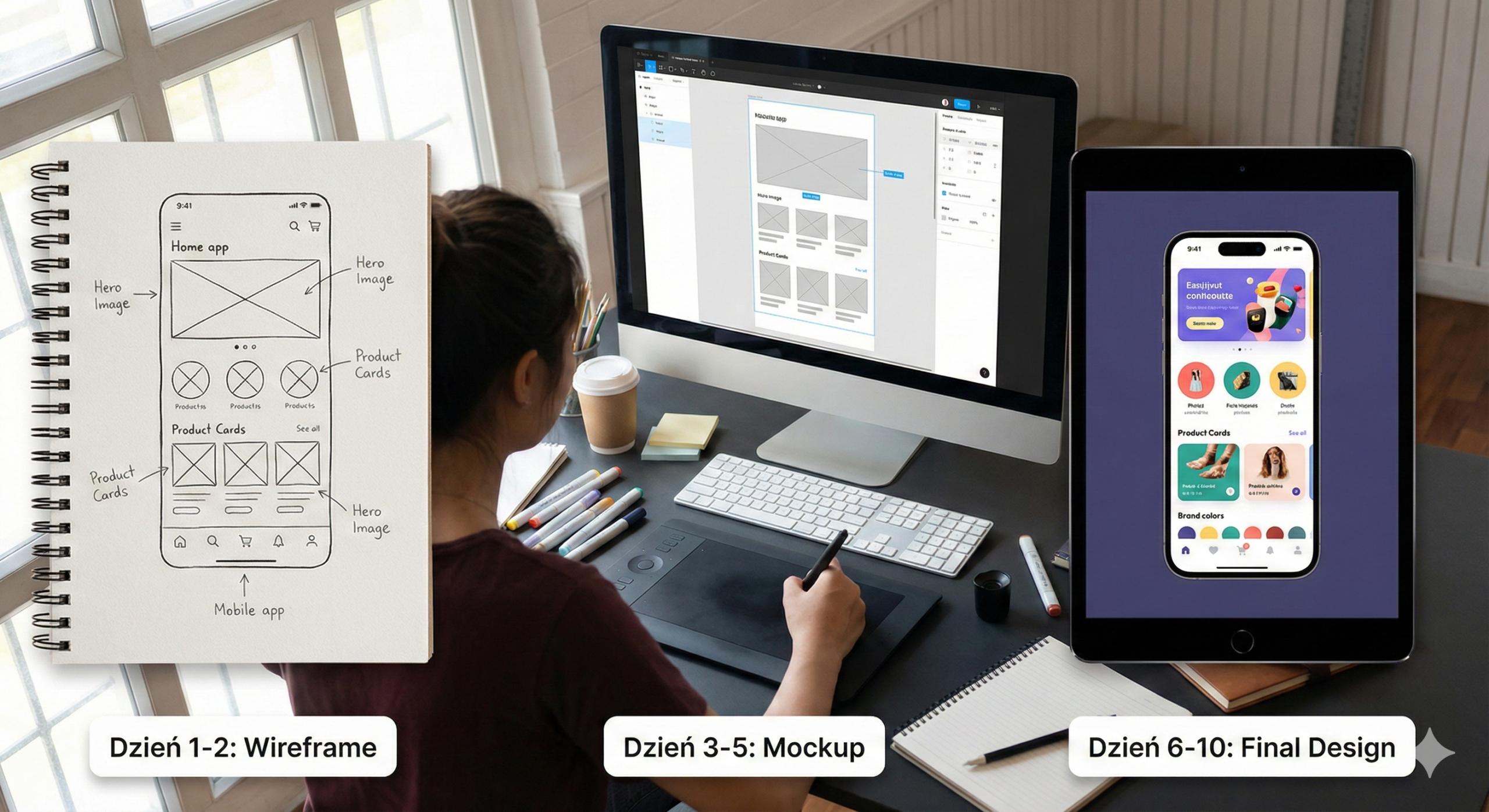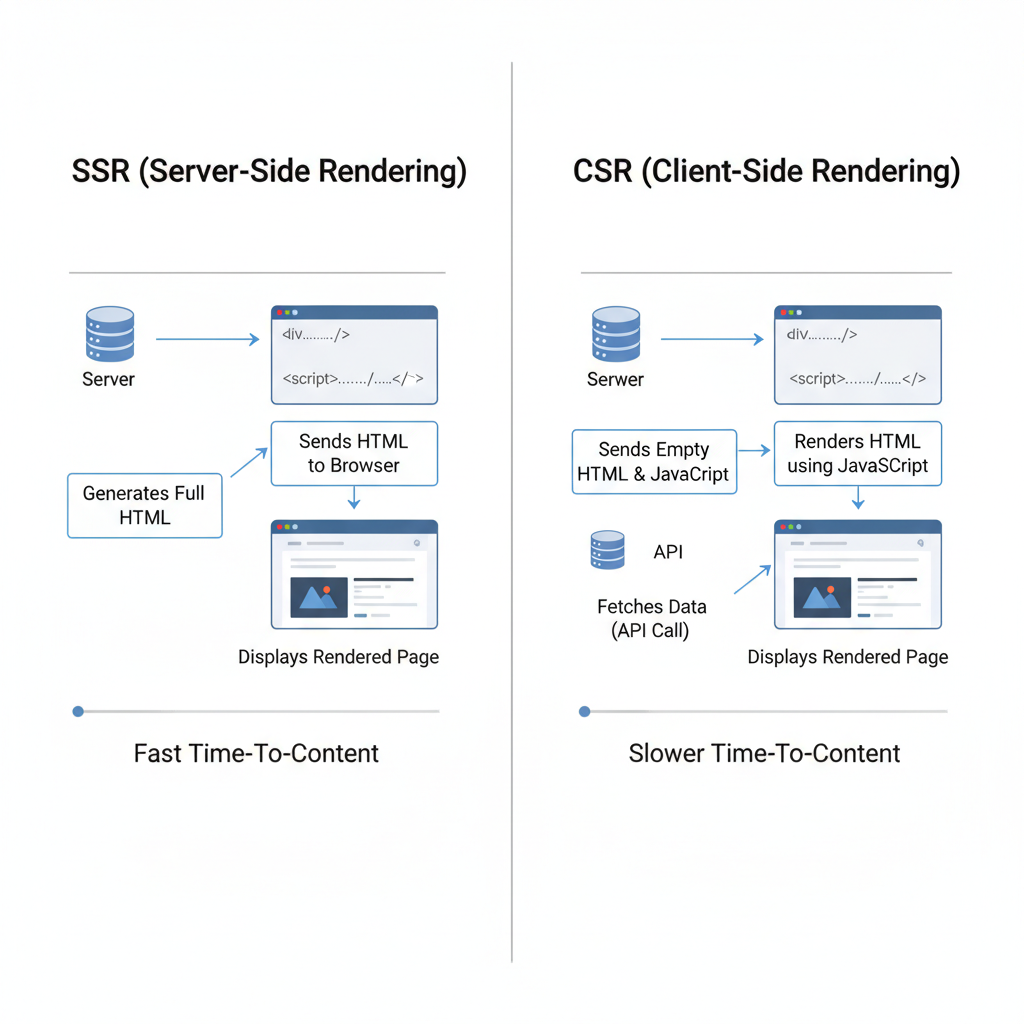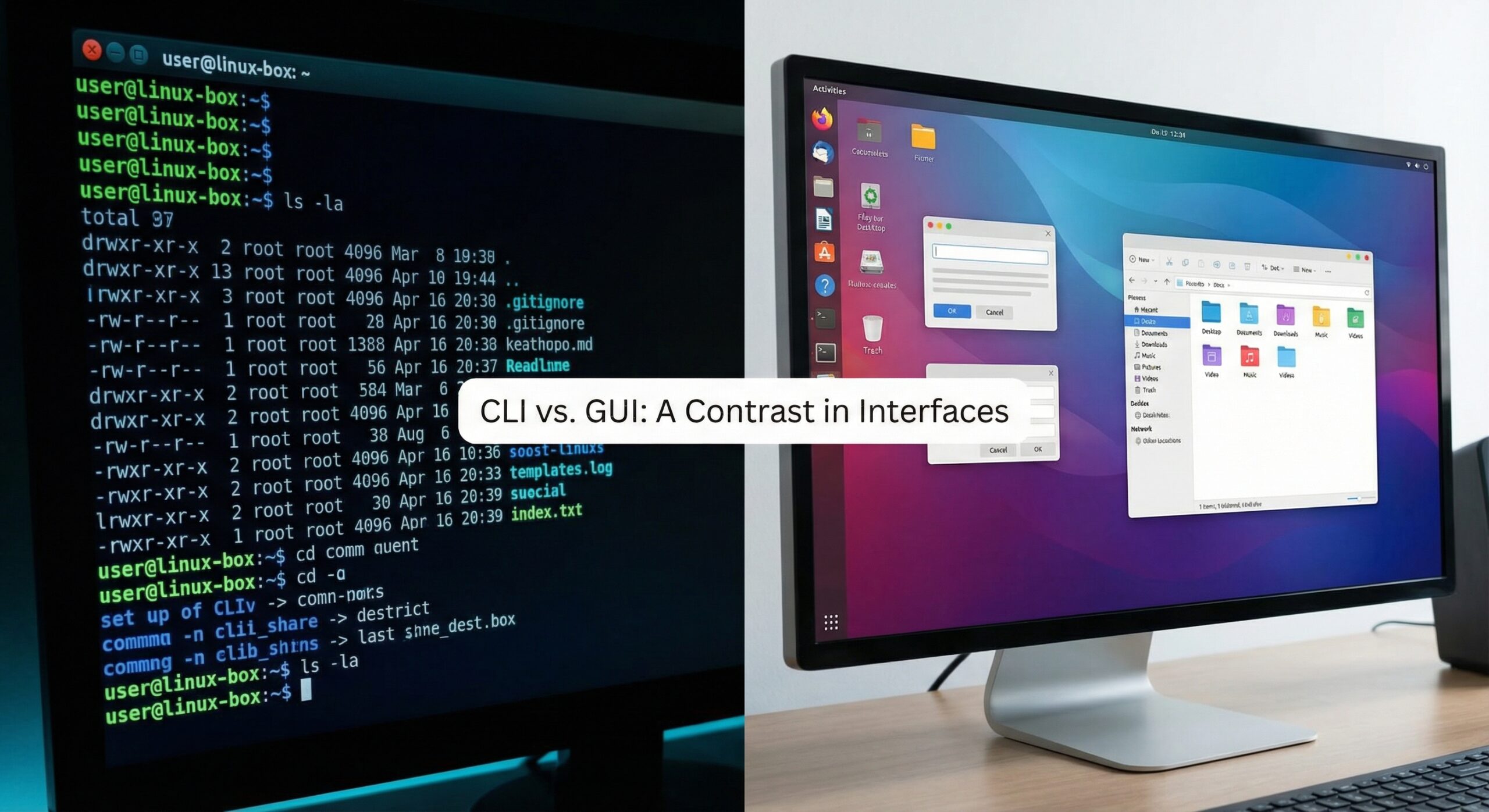Medusa.js to open-source platforma e-commerce zbudowana w Node.js, oferująca headless architecture i pełną kontrolę nad kodem źródłowym. W przeciwieństwie do zamkniętych rozwiązań SaaS jak Shopify czy BigCommerce, Medusa dostarcza complete e-commerce backend, który developerzy mogą self-host, customizować i integrować z dowolnym frontendem.
Platforma została zaprojektowana jako modular commerce engine, gdzie każdy komponent – od cart management po payment processing – jest dostępny przez REST API i może być rozszerzany lub zastępowany custom logic. To czyni Medusa idealnym wyborem dla firm potrzebujących flexibility beyond ograniczeń SaaS platforms.
Architektura i kluczowe komponenty
Headless Commerce Core oddziela business logic od presentation layer. Backend Medusa dostarcza comprehensive API do zarządzania produktami, inventory, zamówieniami, klientami i płatnościami, podczas gdy frontend może być zbudowany w React, Vue, Next.js czy nawet mobile apps.
Plugin Architecture pozwala na easy extension functionality. Payment providers (Stripe, PayPal), fulfillment services (ShipStation), CMS integrations (Contentful, Sanity) czy analytics tools mogą być dodawane jako plugins bez modyfikacji core code.
Multi-region Support jest native feature, umożliwiający różne currencies, tax rates, shipping options i payment methods per region. Global brands mogą zarządzać multiple markets z single backend.
Admin Dashboard dostarcza user-friendly interface dla merchants do zarządzania daily operations – products, orders, customers, discounts. Built w React Admin, może być też customizowany lub całkowicie replaced.
Database Flexibility wykorzystuje TypeORM, wspierając PostgreSQL oraz możliwość łatwej migracji między database providers. Entity models są well-structured i extensible.
Przewaga nad konkurencyjnymi rozwiązaniami
Cost Efficiency eliminuje monthly SaaS fees. Dla rosnących businesses, koszty Shopify Plus ($2000+/month) szybko rosną, podczas gdy Medusa wymaga tylko hosting costs. Companies processing significant volume mogą save dziesiątki tysięcy rocznie.
Customization Freedom jest unlimited. Zamiast walczyć z ograniczeniami platform SaaS czy płacić fortune za custom apps, developerzy mają direct access do codebase i mogą implementować any business logic requirements.
No Vendor Lock-in oznacza full data ownership i portability. Company może migrować hosting providers, zmienić infrastructure czy nawet fork entire codebase jeśli business needs evolve.
Developer Experience jest prioritized przez modern tech stack – Node.js, TypeScript, PostgreSQL, Redis. Comprehensive documentation i active community support ułatwiają development.
Performance Control pozwala na optimization niemożliwą w SaaS. Custom caching strategies, database indexing, CDN configuration – wszystko może być fine-tuned dla specific use cases.
Praktyczne zastosowania
Direct-to-Consumer Brands wykorzystują Medusa dla unique shopping experiences niemożliwych na standardowych platformach. Custom product builders, subscription models czy personalization features mogą być implementowane exactly according to brand vision.
B2B Commerce korzysta z flexibility Medusa dla complex pricing structures, quote management, approval workflows i multi-tier customer hierarchies charakterystycznych dla wholesale operations.
Marketplace Platforms budują multi-vendor ecosystems gdzie różni sellers mogą listować products, podczas gdy platform owner kontroluje transactions, fees i customer experience.
International Expansion leverages multi-region capabilities dla companies expanding globally. Different product catalogs, pricing strategies i fulfillment options per market są straightforward do setup.
Ecosystem i integracje
Starter Templates dla Next.js, Gatsby i Nuxt przyśpieszają frontend development. Pre-built storefronts mogą być customizowane lub serve jako reference implementation.
Payment Integrations obejmują Stripe, PayPal, Klarna i można łatwo dodać regional payment providers. Webhook handling i order reconciliation są built-in.
CMS Connections z Contentful, Sanity czy Strapi pozwalają na content-rich product pages, landing pages i marketing campaigns oddzielone od commerce logic.
Fulfillment Services integration z ShipStation, Shippo czy custom 3PL providers automatyzuje shipping i tracking.
Medusa.js represents democratization of enterprise e-commerce capabilities. What wcześniej wymagało budżetów six-figure i teams of developers, teraz jest accessible dla startups i mid-market companies. Jednak sukces wymaga technical expertise – to nie plug-and-play solution jak Shopify. Organizations potrzebują capable development teams albo agency partners familiar z platformą. Dla tych willing do invest w technical capabilities, Medusa oferuje unmatched flexibility i long-term cost benefits, czyniąc ją compelling choice dla ambitious e-commerce ventures.
Bibliografia:
- Medusa.js Official Documentation – https://docs.medusajs.com
- „Headless Commerce Architecture Guide” – Forrester Research
- „Open Source E-commerce Platforms Comparison” – TechCrunch Analysis
- Medusa GitHub Repository – Community Discussions
- „The State of E-commerce Technology 2024” – Gartner Report











